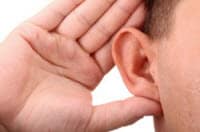 “I only wish I could find an institute that teaches people how to listen. Business people need to listen at least as much as they need to talk. Too many people fail to realize that real communication goes in both directions.”
“I only wish I could find an institute that teaches people how to listen. Business people need to listen at least as much as they need to talk. Too many people fail to realize that real communication goes in both directions.”
— Lee Iacocca
Former CEO Chrysler Corporation
Someone once said that there’s a reason we are given two ears and one mouth. The implication being, we should listen more than we speak. It can be a challenge to learn to listen as an executive. But the good news is, listening is a “learned skill” and becoming a better listener is totally worth the effort.
Many of us entrepreneurs are often in the spotlight and expected to be the ones leading the conversation, having all the answers and driving the conversation. Therefore, often times that expectation pushes us into constantly and consistently being in the speaking role, rather than the listening role.
From my experience as a coach, working with hundreds of entrepreneurs, being a good listener is one of the top five competencies a business owner must have in order to be successful. We must listen first and foremost to our customers, potential customers and employees.
What are some things we can do to improve our listening skills?
1-Become an Active Listener-Use eye contact and “listening” body language. This includes looking directly at the speaker without staring, giving them eye contact and your full attention. Avoid looking at your watch, at other people, your computer or cell phone, or other activities around the room. Lean toward the speaker, showing them you are fully aware of their speaking and their words. Provide feedback with your body, nodding your head as it is appropriate.
2-Be empathetic and non-judgmental-When you value the speaker and accept the speaker’s feelings you will be able to empathize more fully, to “hear” more clearly and completely. Forego judgments. Be present with the speaker, so you can hear, comprehend and understand what they are saying.
3-Paraphrase/Tell Back-Listen so intently that you are able to paraphrase back what the speaker told you. For example, you might say, “What I heard you say was…” When you can “tell back” (not necessarily in the “exact” words, but in similar words) what the speaker has said, this lets them know you have truly heard them.
Too few people really “hear” what others say. In fact, studies show we retain only about 50% of what we hear. So it’s important that we continually and consciously work on our listening skills because I believe that listening is an art. It’s a gift you give to others, and a skill that’s very worth acquiring.



